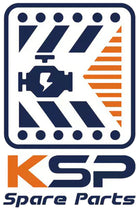Track adjusters are crucial for the proper functioning of tracked machinery, and here’s why they’re so important:
1. Track Tension Control
- The primary function of a track adjuster is to maintain the correct track tension. Proper track tension ensures that the tracks are neither too tight nor too loose. If the tracks are too tight, they can cause unnecessary wear on the undercarriage components, while loose tracks can result in poor performance, reduced traction, and increased wear on the track links and sprockets.
2. Maximize Track Life
- Maintaining the right track tension helps extend the life of both the tracks and the other undercarriage components like rollers, idlers, and sprockets. If the tension isn’t adjusted correctly, it can lead to uneven wear, reducing the lifespan of these costly parts and leading to more frequent repairs and replacements.
3. Improved Performance
- When tracks are properly adjusted, they perform better, providing better traction, smoother operation, and more effective use of engine power. Improperly tensioned tracks can slip or cause the machine to struggle, which leads to decreased efficiency and productivity.
4. Reduced Risk of Damage
- A properly adjusted track reduces the risk of damage to the track itself and other components of the undercarriage. For example, a track that is too tight can cause unnecessary stress on the sprockets and other drive components, while a loose track can cause wear on the rollers and idlers. Both scenarios can lead to expensive damage and downtime.
5. Enhanced Fuel Efficiency
- When the track adjuster is correctly maintaining track tension, the machine works more efficiently, and this can lead to improved fuel efficiency. Poor track tension can cause the engine to work harder, increasing fuel consumption and reducing operational cost-effectiveness.
6. Safety
- Proper track tension improves the safety of the machine, especially in challenging or rough environments. Loose tracks can cause unexpected machine movements, potentially leading to accidents or damage. Tight tracks can cause undue stress on mechanical parts, leading to premature failures that could pose safety hazards.
7. Ease of Maintenance
- With an effective track adjuster, it becomes much easier to make adjustments and maintain proper tension over time. This means that operators can quickly address issues before they lead to significant wear or failure, reducing unplanned downtime.
In short, a well-functioning track adjuster is key to maintaining the efficiency, performance, and longevity of your tracked machinery, while also reducing maintenance costs and ensuring safe operation.
What KSP provide is the Best Track Adjuster in the Market. Feel free to check in our website and find the fit Track Adjuster. If you're still unsure, you can always consult KSP parts specialist for guidance on the best track adjusters for your specific needs.

